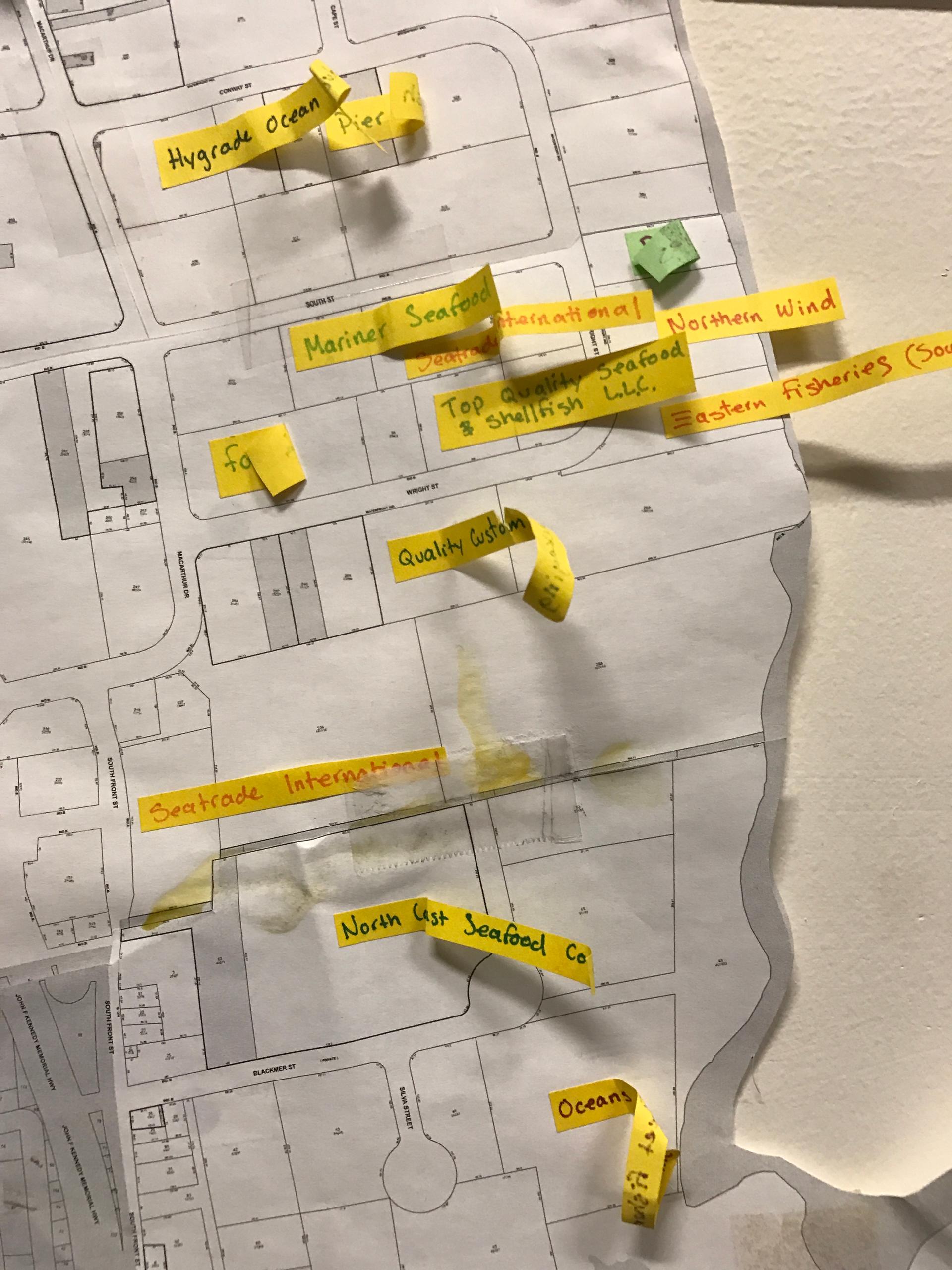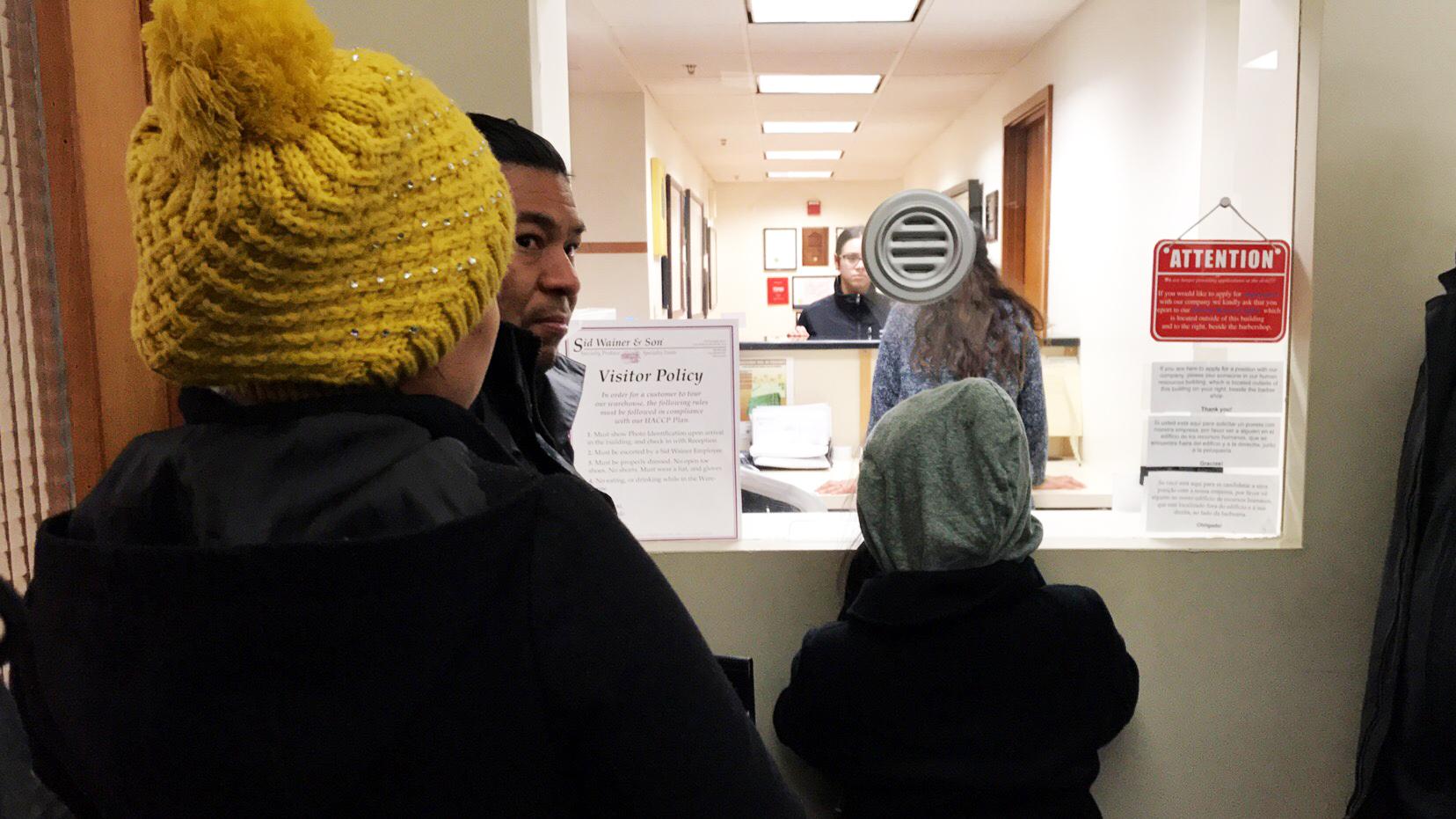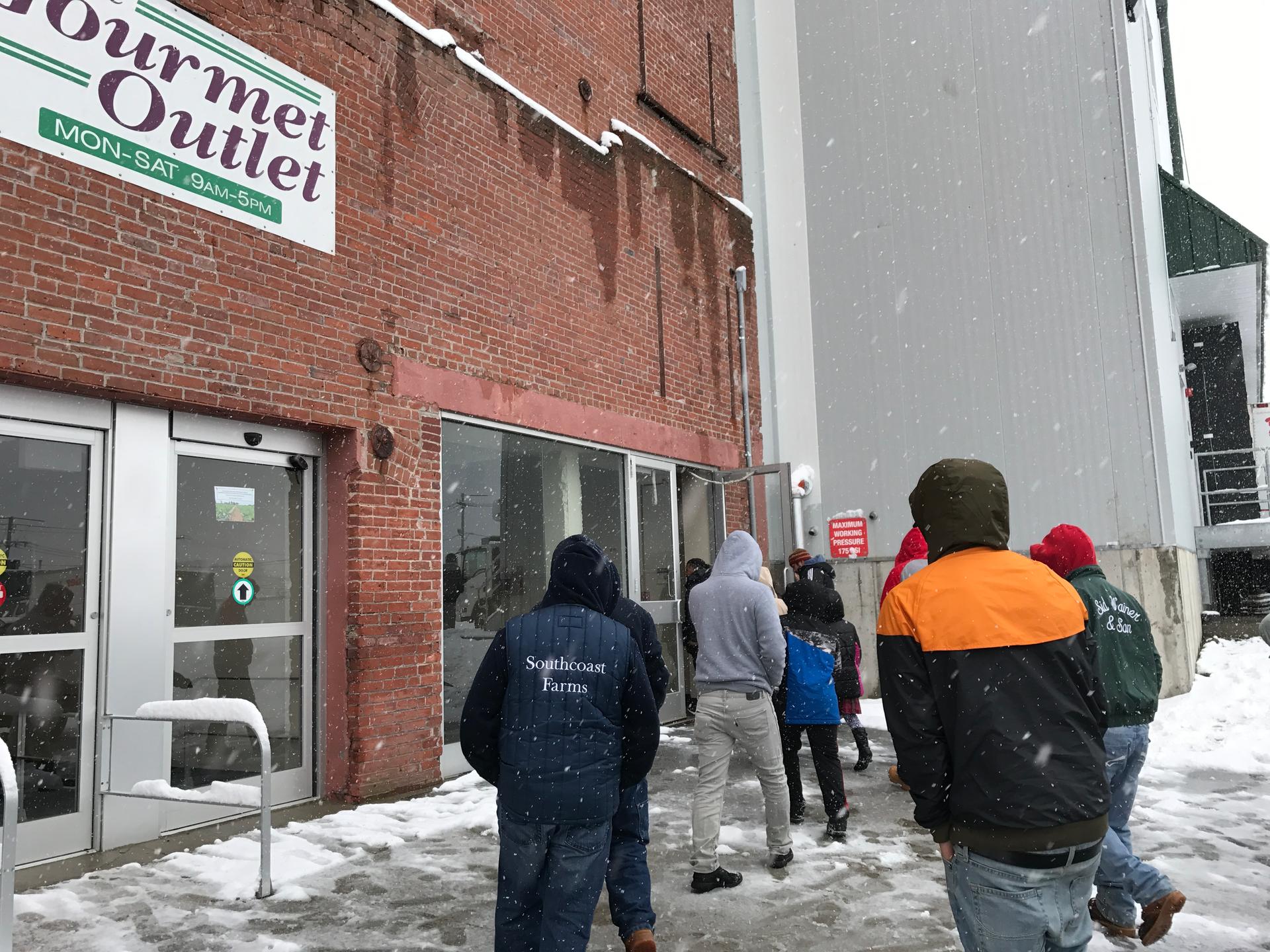Workers who have been fired gather at the management office for Sid Wainer & Son in New Bedford, Mass., on March 10, 2017. Most of the workers are undocumented, and felt their termination was unfair.
It’s Friday afternoon, and about 30 snow-flecked workers are crammed into the human resources office of Sid Wainer & Son, a gourmet food wholesaler in New Bedford, Mass., demanding to speak to the owners.
They have all been fired — unfairly, they feel. They’re employees of a temp agency Sid Wainer just ended its contract with. Most of them are undocumented. And yet, here they are in the management’s offices, making demands.
One of the workers, having waited hours for an owner who won’t come down, tells a manager his years of work should mean something.
A lot of people work for this place for 10, 15 years. This company never pays us vacations, holiday,” he says in heavily accented English. “I have the kids, I gotta pay rent, I gotta pay everything.”
He declines to say his name — he’s in the country illegally, originally from Guatemala.
This kind of demonstration is unusual for undocumented immigrants, especially in a city where, 10 years ago, hundreds of people were arrested and separated from their families in a massive immigration raid at the the Michael Bianco leather factory.
Businesses in New Bedford have continued to hire undocumented immigrants since the raid. Typically business owners don’t face steep consequences for doing so. But the employees can.
Related: Immigration law experts say workplace raids don't really work
The demonstration at Sid Wainer is led by Adrian Ventura, a formerly undocumented Guatemalan immigrant and the director of New Bedford’s Centro Comunitario de Trabajadores, or Workers’ Community Center.
Ventura says workplace mistreatment in the US is not unusual for indigenous Central Americans like himself and many of the workers, especially if they’re working unauthorized. He says he experienced abuse and discrimination at work when he was undocumented. Now that he has papers, he wants to stop that from happening to others.
“I have to keep helping the community,” he says, “because I know that what happened to me is happening to other people right now. … And if I still didn’t have documents, I would feel persecuted right now.”
At a meeting earlier in the week, Ventura helped the Sid Wainer workers identify unfit working conditions — things like slippery floors, dirty bathrooms, and inadequate training to operate forklifts.
And he educated them on US labor laws: “In this country, it’s not against the law to organize,” he said. “It’s not like in Guatemala, where organizing could cost you your life.”

With help from the CCT, the workers organized a committee to ask for their jobs back — but under better conditions. They drafted a letter outlining their issues, such as docked pay for lunch breaks, lack of health and safety training, and wage theft. The letter also says, “We believe that the notice of our imminent dismissal is discriminatory.”
On this winter Friday, they’ve come to deliver it.
After addressing the HR manager, the man who spoke up earlier said, visibly shaking, “We matter too. We have a voice, and we matter.”
He said he’d been working at the plant for 16 years, and his lack of legal status never seemed to be a problem for his contract employer.
Sid Wainer says that it requires all its sub-contractors to use E-Verify, a government program that lets employers check whether someone is legally allowed to work in the US.
But it’s unclear whether that’s actually happening. In states where E-Verify is mandatory — it’s not in Massachusetts — there’s about a 60 percent compliance rate.
BJ’s Temp Services, the sub-contractor that hired the workers, did not respond to interview requests. A representative for Sid Wainer, meanwhile, says that the company “complies with all labor and employment laws, and it strongly denies any allegations to the contrary.”
But some of the workers gathered at Sid Wainer say they have worked there for up to 17 years, all the while undocumented.
Bristol Country Sheriff Thomas Hodgson, who serves New Bedford, says companies often hire unauthorized workers through sub-contractors, thus passing the responsibility to check workers’ documents to someone else.
The New Bedford Immigrants Assistance Center (IAC) estimates there are between 7,000 to 10,000 undocumented people, mostly from Guatemala, living and working in the city.
IAC director Helena DaSilva Hughes says the population always finds work. “A lot of them are doing landscaping, a lot of them are doing cleaning … there’s a fishing industry,” she says. “That’s where they are. And everybody knows that.”

Kevin Johnson at the University of California Davis School of Law studies immigration law. He says economic draws are a big factor in unauthorized migration.
“You see that employers in highly competitive industries want relatively inexpensive labor and are willing to violate the laws to get that labor,” Johnson says.
That might be why advocates like Ventura feel empowered to rally undocumented workers.
He was doing it even during the Bush-era raids. After allegations of wage theft at the Michael Bianco factory surfaced following the raid in 2007, Ventura was part of a group that brought a lawsuit against Bianco’s owner, who settled the case for $850,000.
Ventura says activism is in his Mayan blood. Back in Guatemala, he led his indigenous community in peaceful resistance against government violence.
“Our sacred text says it’s a sin to let yourself be humiliated by the invaders,” he says, referring to people of European descent — both the ones who enforce immigration law in the States, and the ones who settled his native Guatemala.
After hours of waiting at Sid Wainer, a manager eventually tells the gathered workers to take their issues up with the temp agency that hired them.
They spill out into the parking lot. Some people have walked out of their shifts to do this. Others are here on their day off, with their children. They rely on this job to support their families, they say. “We’ve given everything to this company,” the man who spoke to human resources says in Spanish. His wife has brought their son and daughter to the demonstration.
“Without work, we are nothing.”
